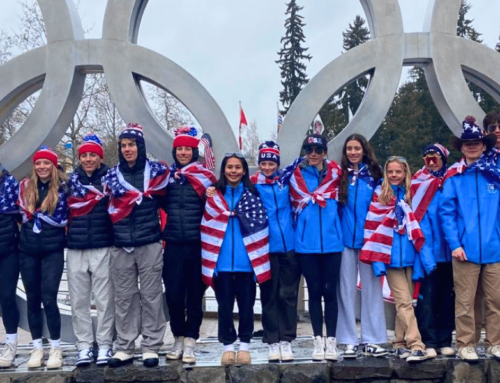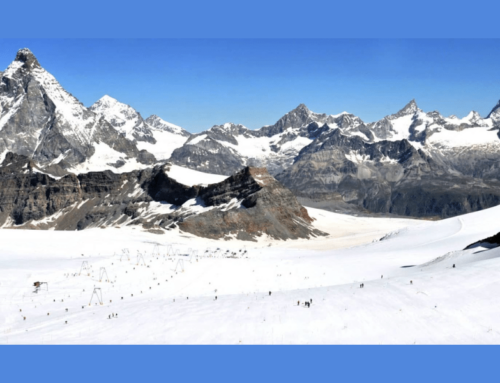2023-24 race season has already started!
Yes, the 2022-23 race season is over and you are looking back at it with either pride or disappointment. However you feel, please do feel it (deeply) for a little while, then put the past behind you and look toward the next season.
If you’re a ski racer serious about achieving your competitive goals, the end of the race season means it’s time to prepare for the next. Being the best ski racer you can be is not a part-time activity. It requires a year-round commitment and consistent effort in your physical, technical, tactical, and, yes, mental training. After a brief rest, a week or two, you must start executing your prep period training plan to continue progressing toward your goals for next winter.
Goal Setting
Write down your goals for next season to help you determine what to do during the summer prep period. It would be best initially to examine your long-term goal – what you ultimately want to accomplish in your ski racing. Ask yourself whether that “dream” goal needs to be changed (upward or downward) or whether you are still on track. Next, set a seasonal goal for what you want to accomplish next winter regarding results, rankings, etc.
Then, using what you learned from evaluating your last year (read my previous article) and feedback from your coaches, set specific goals for your physical conditioning, technical and tactical development, and mental training to achieve those goals. These goals should be specific (e.g., amount of weight lifted, frequency of workouts) and structured into a weekly training plan. The idea is that every day when you get up, you know exactly what you need to do that day to progress toward your next season’s goals.
Mental Muscles and Mental Toolkit
The off-season is the ideal time to work on the mental side of your ski racing. Here’s my challenge: If you’re not engaged in a regular mental training program, you’re just not doing everything you can to become the best ski racer you can be. Just like you exercise your physical muscles, you must consistently exercise four mental muscles with a structured conditioning program to strengthen your mind.
Motivation
Your ability to commit to your goals will depend on how motivated you are to put in the hard work, even when you’re tired, bored, in pain, or want to do much more fun things.
If you have a plan, you’re more likely to stick to it. Develop an organized weekly training program to help you build your mental training into your daily activities. Also, find a training partner to work out with; you’ll be less likely to skip workouts when you feel unmotivated because your partner will be counting on you and you’ll work harder because someone is pushing you to do that extra rep, set, or drill. And post motivational quotes and reminders of racers you admire and are your most significant competitors: “Am I working harder than they are?”
Confidence
A significant purpose of off-season training is to build confidence in your ability to ski consistently fast. If you’re working hard and improving during the off-season, when the winter begins, you’ll have the confidence that you have done everything possible to ski your best and achieve your goals. Think of it as putting money in the bank: The more confidence “money” you deposit now, the more significant confidence “withdrawals” you’ll be able to make next winter.
Intensity and focus
An important off-season goal for you is to identify and consistently maintain your ideal physical intensity (e.g., get fired up or calmed down) in the gym and your on-snow training. You can develop your intensity and focus muscles during physical conditioning and on-snow training (more on that in a future article). Equally essential is strengthening your focus in all of your efforts to remove distractions and ensure quality training.
Mental imagery
Mental imagery is the most powerful tool you can use in your mental training during the off-season. Imagery involves regularly seeing and feeling yourself skiing as you want. Visualization should also include different training and race situations. You should think of imagery as “weight training for the mind.” It can strengthen your physical, technical, tactical, competitive, performance, and mental “muscles.” And just like with a conditioning program, you must commit to its consistent use to gain its benefits. I will go into more detail about mental imagery in a future article.
Are You “All In?”
Needless to say, you don’t have to commit yourself 100% if your goal is to participate and enjoy ski racing. But if you want to be your best (or the best!), you must go “all in.” To see whether you are willing to go all in, ask yourself these questions:
- How big are your ski racing goals for next season?
- How hard are your competitors going to be working in the off-season?
- How badly do you want it?!?!
Instead of just discussing them, taking action to achieve your winter goals is essential. Merely expressing the desire to excel as a ski racer won’t suffice; you must put in the necessary effort. If you have high aspirations, committing to demanding off-season physical, on-snow, and mental training programs is your best option. Although our sport offers no guarantees, your hard work during the preparation period will give you a chance to ski your fastest and reach your ski racing goals. When you step up to the starting gate for your first race next season, you should be confident that you’ve done everything possible to achieve your objectives.





















